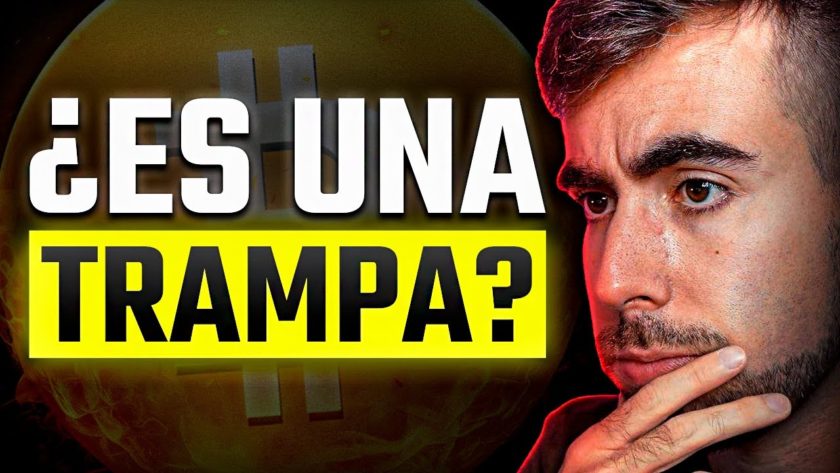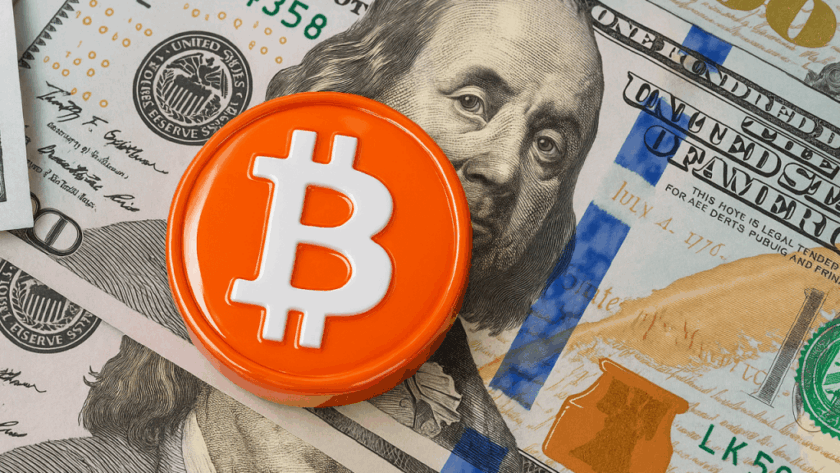“You can say that Bitcoin’s headquarters is in Lagos now. Or in Minsk. Or Hong Kong.”
The year 2020, shaped by the global pandemic and political and economic crises worldwide, made us reconsider many things. Stuff that didn’t catch much attention before starts to matter. In crypto, new, powerful trends are also on the rise.
This article is part of CoinDesk’s Most Influential 2020 – a list of impactful people in crypto chosen by readers and staff. The NFT for the artwork here – by XCOPY – is available for auction at The Nifty Gateway, with 50% of the proceeds going to charity.
While bitcoin traders might pray for another big investor to pump the market with a fresh money injection, a different kind of adoption is happening globally: bitcoin comes to those who need it most. Unstoppable, uncensorable internet money – bitcoin is catching on among protesters and dissidents around the globe.
“Bitcoin wallets today are easier and more effective than those in the past,” Alex Gladstein, chief strategy officer at the Human Rights Foundation, told CoinDesk. “Bitcoin’s liquidity has also grown enormously, and today there are people very happy to buy BTC from you in exchange for local currency in virtually every major urban area on Earth. For these two reasons, bitcoin is becoming a more viable tool for pro-democracy movements worldwide.”
This year has also been rich for protests and civil unrest – a friendly environment for bitcoin’s libertarian, rudderless nature – but that’s not the only reason it’s gaining momentum with the civic movements around the world. Looks like the crypto industry is finally catching up with the needs of people beyond the community of tech-savvy crypto-evangelizing fans.
People rising against police brutality in Nigeria, those fighting the ruling regime in Belarus, journalists in Hong Kong and the leader of the opposition to President Vladimir Putin in Russia – they don’t necessarily believe in bitcoin’s mission, but for the mission they are on bitcoin became an essential tool.
Most of these people are not vocal bitcoin advocates, and some of them had been crypto sceptics before discovering bitcoin as something they can use. “I used to be quite far from the crypto world but this thing turned out to be useful,” said Yaroslav Likhachevsky, co-founder of BYSOL, a non-profit helping people in Belarus who lost their jobs during the ongoing political tumult.
Gladstein, of the Human Rights Foundation, told CoinDesk the epicenter of the important bitcoin activity left the Western hemisphere: “You can say that the “headquarters of bitcoin” is in Lagos now. At least, everybody there understands its value proposition. Most of Silicon Valley is hopelessly ignorant about bitcoin,” Gladstein said.
‘It’s like I morally broke free.’
Belarusians have been protesting the results of the recent presidential election since August, not recognizing the current president Alexander Lukashenko as a legitimate winner and demanding that he quits. The regime responded with mass arrests and brutal beatings by the police, internet shutdowns and firing of those who participated in the protests.
BYSOL is a non-profit started by a group of tech entrepreneurs to help people who were fired in retaliation for showing their political stance or quit their government jobs in protest. According to the official website, BYSOL has just recently distributed more than 1.9 million euros (over $2.3 million) in donations, all via bitcoin, to a thousand people across Belarus.
This did not get unnoticed by the ruling regime: Bank accounts of the BYSOL founders were soon blocked. Mikita Mikado, founder of a startup PandaDoc, who also helped BYSOL, found his employees arrested in September on fraud allegations. One of them, product director Viktor Kuvshinov, is still in jail.
The team soon found out that while fiat rails are good for fundraising (BYSOL raised most of its funds via Facebook’s fundraising interface), distributing help in fiat is hard. The authorities have been monitoring BYSOL founders’ bank accounts and blocking them, so crypto provided the only lifeline the regime could not touch.
Maria Koltsyna, one of the people BYSOL helped, talked to CoinDesk three months after she was fired from her job at a town hall for showing support to the opposition candidate during the election. She got $1,500 worth of BTC via a mobile crypto wallet – along with the instructions how to install and use it. She immediately put the money to work, buying a laptop and starting to learn a new job – search engine optimization (SEO).
Belarus, located in Eastern Europe between Russia and Poland, is a small economy but it turned into a regional IT hub recently, and one of the tech startups offered Maria Koltsyna a part-time job. She just got her certificate as a SEO professional and is excited for the future that awaits. She told CoinDesk the new life feels better than the one she left behind.
“When I worked in our city hall, I felt sad not seeing any results of our work, any respect or team spirit among coworkers. Now, in this company, everyone is working for the goal, supporting each other and sticking together.”
Losing the old job, together with the timely help, opened the door to totally different life, Maria said. She doesn’t hate waking up and going to work in the morning anymore. “It’s like I morally broke free,” she said.
One thing that makes her pessimistic, though, is the actual results of the protest movement. So far, Lukashenko is still clinging to his power, even though he occasionally admitted that he might have been in power “too long.”
“It really worries me to think that on New Year’s Eve I turn on my TV and see the same president again,” Koltsyna said.
The wheel of history
Koltsyna’s fears are not without foundation: Alexander Lukashenko chose to cling to his power, posing on cameras with an assault rifle and deploying squads of riot police of the peaceful protest marches.
Yaroslav Likhachevsky, CEO of a medical tech startup Deepdee, was a volunteer observer during August’s presidential election in Belarus and reported rule violations on his polling station. Together with other tech entrepreneurs and civil activists he founded BYSOL after the success of another initiative, where the activists raised funds for the COVID relief in Belarus, while the authorities denied the country was hit by the pandemic at all.
Living between Belarus and Netherlands, where Deepdee is headquartered, Likhachevsky is now staying in Europe fearing persecution at home. But he hopes to “celebrate Christmas at home,” he told CoinDesk. He believes the collapse of the current political system in Belarus is inevitable, but admits the process can take much longer than several weeks, potentially stretching to years.
Same with the crypto adoption. So far, there are few Belarusians using bitcoin, even though some of them have been introduced to it first by BYSOL, just like Maria Koltsyna. Most converted bitcoin to fiat immediately upon receiving help, Likhachevsky said.
As a currency which deliberately expunges any notion of identity, supporting the transactions of dissidents has always been at the core of bitcoin.
“Right now, people view crypto as just a tool. But this can change when we grow the ecosystem significantly, so that people start paying each other in crypto,” he said. To start this parallel economy, the BYSOL team is now joining forces with several other non-profits helping people who were punished for protesting.
Among them are By_help, helping people arrested during the rallies to pay court fines, and a peer-to-peer network Honest People, where users can send money directly to the people in need, verified by volunteers. Together with BYSOL, these projects launched a mobile app, dubbed Digital Solidairty, that would aggregate the applications for help in one place, with a crypto wallet built in.
People will be able to apply for help and get it in one place, right on their phones, and donate to help others, too, Likhachevsky said.
Not that the other partners are excited about crypto, just as the BYSOL team wasn’t at first, Likhachevsky admits, but he’s planning to convince his colleagues to switch to crypto, too. A wake-up call came just weeks ago, when the Belarusian banks started blocking the accounts of people By_help helped.
“After this news, we had no choice but to move towards the digital economy of the future,” Likhachevsky said. Not to shock too many people with bitcoin’s volatility, the non-profit might switch to tether, a dollar-pegged stablecoin, he added.
BYSOL and others are preparing for a long game, even though they keep hoping victory is near. But the new infrastructure will be needed even if the protests reach their goal and Alexander Lukashenko quits, leaving the country for a new leader after 26 years of his authoritarian rule.
“People will need help for some time after Lukashenko is gone,” Likhachekvsky said. “Because the economy will need some time to recover after it hasn’t been developing for 20 years.”
Still, not too long to wait, he believes: “For good or bad, the wheel of history can not be stopped.”
Merchants of hope
In a different part of the world, the Feminist Coalition in Nigeria raised money to help people hurt by the police. The Coalition, just like the activists in Belarus, hadn’t used bitcoin until very recently.
The group, aimed at promoting women’s rights in Nigeria, this fall offered help to the protestors that demanded the dismantling of the Special Anti-Robbery Squad (SARS), an infamously violent police subdivision.
During the widespread #EndSARS demonstrations, people got hurt, arrested and even killed, so the Feminist Coalition helped with medical care, legal aid and funeral funding. After the local payment platform stopped servicing the organization, it switched to bitcoin donations. According to the Coalition’s own report, by Oct. 22 it raised almost 12 BTC (about $155,000 at the price on that day).
The movement received support from across the globe: Gladstein of the Human Rights Foundation set them up with a BTCPay Server and Jack Dorsey, the Twitter CEO and a prominent bitcoin advocate (the first among the Most Influential by CoinDesk in 2019), invited his five million followers to donate to the Feminist Coalition in a tweet on Oct. 14.
On Oct. 22, the group stopped the fundraising and issued a statement on its website, calling for the stop of protest actions. The tweet calling for donations Dorsey quoted a week before is also gone. The statement came after Nigeria’s President Muhammadu Buhari called for the protestors to stop going out on the streets.
“We are merchants of hope. Our priority is always the welfare and safety of the Nigerian youth,” the statement by the Feminist Coalition said. “Following the President’s address, we hereby encourage all young Nigerians to stay safe, stay home, and observe the mandated curfew in your state. The Feminist Coalition has made a decision to henceforth stop all donation inflows for the #EndSARS peaceful protest.”
Earlier, on Oct. 12, Buhari announced the dismantling of SARS, which the protestors have demanded. However, protestors were far from satisfied, calling for further protection of the human rights in the country.
Alex Gladstein believes the victory of civil society is not yet there: “The government announced dismantling SARS and nothing happened.” He believes the Feminist Coalition stopped fundraising as the members didn’t feel comfortable staying in the spotlight anymore.
In the meantime, the Nigerian government apparently grew angry with the Femininst Coalition’s work and retaliated. In November, members found their bank accounts frozen, at least one had a passport confiscated, and the movement’s website was blocked in Nigeria, BBC reported.
On a broader scale, #EndSARS movement participants got their names on the country’s no-fly lists and were sued for looting and destruction of properties.
The Coalition itself declined to comment on why it stopped fundraising. “We’re taking some down time from the press while we focus on our next project,” one of the activists said.
Taking donations in bitcoin in the case of the Feminist Coalition helped solving one more issue: the anonymity of the donors, who might be afraid to attract the unfriendly attention of authorities. The case is not unique for Nigeria: in Belarus, police started subpoenaing people who were noticed donating to BYSOL, Likhachevsky said.
Read more: Nigerian Banks Shut Them Out, so These Activists Are Using Bitcoin to Battle Police Brutality
Bitcoin trickling into Hong Kong
Belarus and Nigeria became this year’s hits in the bitcoin world, however, some activists and dissidents in other parts of the world have been quietly using crypto for years. One example is the Hong Kong Free Press, an independent media publication in the semi-autonomous exclave in a prolonged confrontation with mainland China.
Hong Kong has been engulfed in street protests for more than a year after the introduction of the new security law last summer, which includes a provision where people facing criminal charges in mainland China can not avoid extradition if they flee to Hong Kong. The law was formally introduced by Hong Kong’s leader, Chief Executive Carrie Lam, who is considered pro-Beijing.
China also started clamping down on Hong Kong’s media freedom, which directly affected the Hong Kong Free Press, among others: In August, the Hong Kong authorities denied a work visa to the HKFP Editor Aaron McNicholas.
The publication says it relies exclusively on readers’ donations, and part of it comes in the form of bitcoin. “Certainly, it’s reassuring to have a backup like this when the city is undergoing a press freedom crackdown,” HKFP Editor-in-chief Tom Grundy told CoinDesk via email, adding that the team is “grateful to the crypto community for supporting us through that channel.”
Grundy declined to detail how significant crypto donations were in the overall flow of support from the readers, only saying that “the donations are actually managed by a close friend of ours as we’re not especially well-versed in the mechanics of managing the funds.”
HKFP has raised HK$14,817 in bitcoin since 2015, as of September 2019, or a bit more than $1,900, Grundy tweeted last year. The tweet was dedicated to HKFP switching from BitPay to its open-source rival, BTCPay, because BitPay would delay the payments in fiat.
“Funds held for weeks simply b/c HK banks use SWIFT not IBANs,” Grundy tweeted, referring to the two different systems of inter-bank communications used in the world. BitPay replied to the complaint, tweeting the delays were caused by the difficulties validating transaction data for the currency sent to Hong Kong banks.
Crypto for Russian dissidents
Another example of bitcoin as a lifeline for dissidents is Russia’s leading opposition politician, Alexei Navalny, who, along with a small group of other Russian civic organizations, are supplementing fiat donations with a crypto option. This group includes Russia Behind Bars, a non-profit helping inmates and ex-inmates of Russian prisons, and Roskomsvoboda, an organization documenting Russian internet censorship.
Navalny started as a popular blogger and entered Russia’s political scene in 2013 when he campaigned to become Moscow city mayor (he lost), and then ran for president in 2018 (the Central Election Commission did not register him as a candidate). This fall, Navalny was poisoned with a chemical weapon – the fact Russian authorities have been repeatedly denying. Navalny has been recovering in a German hospital.
Navalny’s team has been raising funds in bitcoin, in addition to fiat donations, since December 2016. Since then, the politician raised over 651.5 BTC, using the money to support the work of his volunteers across Russia who investigate public officials, run for local offices and gather protest rallies.
Navalny’s bank accounts, as well as those of his family and allies, have been routinely frozen, so bitcoin is an uncensorable backup option, even though it only constitutes a small share of all donations. The fact that there is the option of donating in bitcoin can discourage the authorities from going after the activists’ bank accounts, said Leonid Volkov, who is managing the operations of Navalny’s allies network.
“Our opponents understand they can’t cut us off from sources of funding because [if they try] at least a part of the donations will go into crypto. Last time our accounts got frozen we saw an uptick in bitcoin donations,” Volkov told CoinDesk in July.
It can also serve as a safe vault if the authorities start arresting and freezing bank accounts. “If you see your bank accounts start getting frozen, you can take your money out in crypto and keep it there until the dust settles,” Volkov said.
Money liberated
Money is a powerful political tool, and a chance to rely on something that can not be weaponized by any state or financial authority is vital for the people who find themselves at odds with their country’s politics for any reason.
“As a currency which deliberately expunges any notion of identity, supporting the transactions of dissidents has always been at the core of bitcoin,” says Nic Carter, partner at Castle Island Ventures. “Indeed, one of the first high-profile uses of bitcoin was to fund Wikileaks in 2011.”
“At a time where financial infrastructure is increasingly politicized, and individuals risk getting unbanked or “derisked” from banks and payment processors for expressing disfavored political views, Bitcoin is rightfully gaining usage as a censorship-free payments medium,” Carter added.
What makes the activists using bitcoin different from the rest of the crypto community is their attitude towards crypto is maximally pragmatic and minimally enthusiastic. People sending crypto back and forth to support those repressed by their government might not want to step into the limelight and advocate for bitcoin.
Yet, they are serving as one of the most valid proofs for the crypto value proposition: borderless money with no one to stop it. As Leonid Volkov said:
“For us, bitcoin is just money.”





